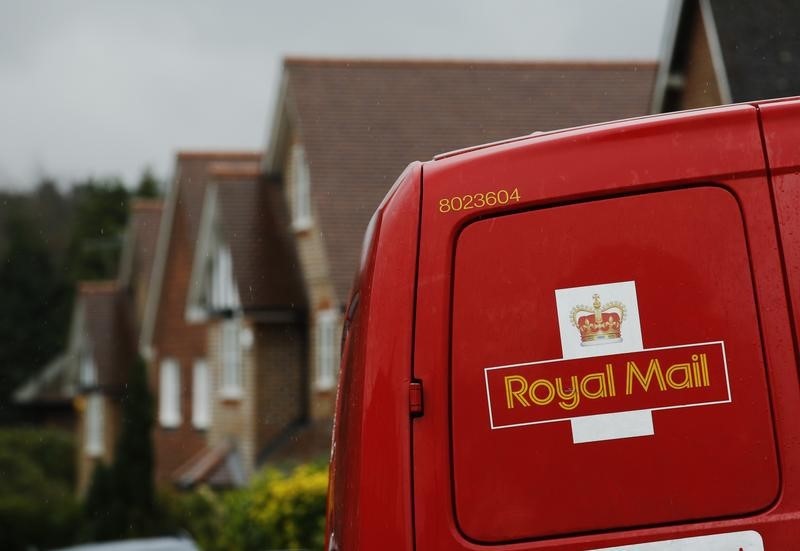LONDON (Reuters) - Britain's postal regulator Ofcom will not overhaul rules for direct mail delivery competition, dealing a blow to Royal Mail which has complained rival offers will undermine its ability to deliver a nationwide service.
Royal Mail, required by law to deliver mail across Britain six days a week at uniform prices, had pushed for a full competition review after complaining that a new rival delivery service by Whistl jeopardised its own, as it was able to focus on densely populated, profitable areas only.
Having reviewed the market and the business plans of both companies, Ofcom said it believed Royal Mail's ability to meet its obligation was not being impeded by competition, adding it was in fact an incentive for the firm to become more efficient.
Shares in Royal Mail, privatised last year, traded 2.7 percent lower at 406.8p at 0805 GMT.
Whistl, a unit of Dutch mail group PostNL that was formerly known as TNT Post UK, has been delivering mail itself in Manchester and London since April 2012 without using Royal Mail's network. It has plans to deliver to around 42 percent of UK addresses by 2019.
In 2013-14, Whistl only delivered around 0.5 percent of the total UK addressed letter mail market.
Like others, Whistl also collects and sorts mail in certain parts of Britain before handing it over to Royal Mail for delivery -- a "cherry picking" approach Royal Mail says could reduce its revenues by over 200 million pounds in 2017-18.
The emergence of Whistl is one of a number of pressures Royal Mail faces, including declining letter volumes in an age of social media and email, and rising competition in parcels -- the designated growth engine of its business.
While Ofcom was unmoved on the threat posed by Whistl, it did say it had begun a broader review of factors affecting Royal Mail's ability to deliver its service, including efficiency and its parcel delivery performance -- due to complete next year.

It also outlined proposals to amend rules on prices Royal Mail can charge competitors to deliver mail through its network, based on the cost of delivery in certain areas of the UK.
(Reporting by Neil Maidment, Editing by Paul Sandle/Keith Weir)